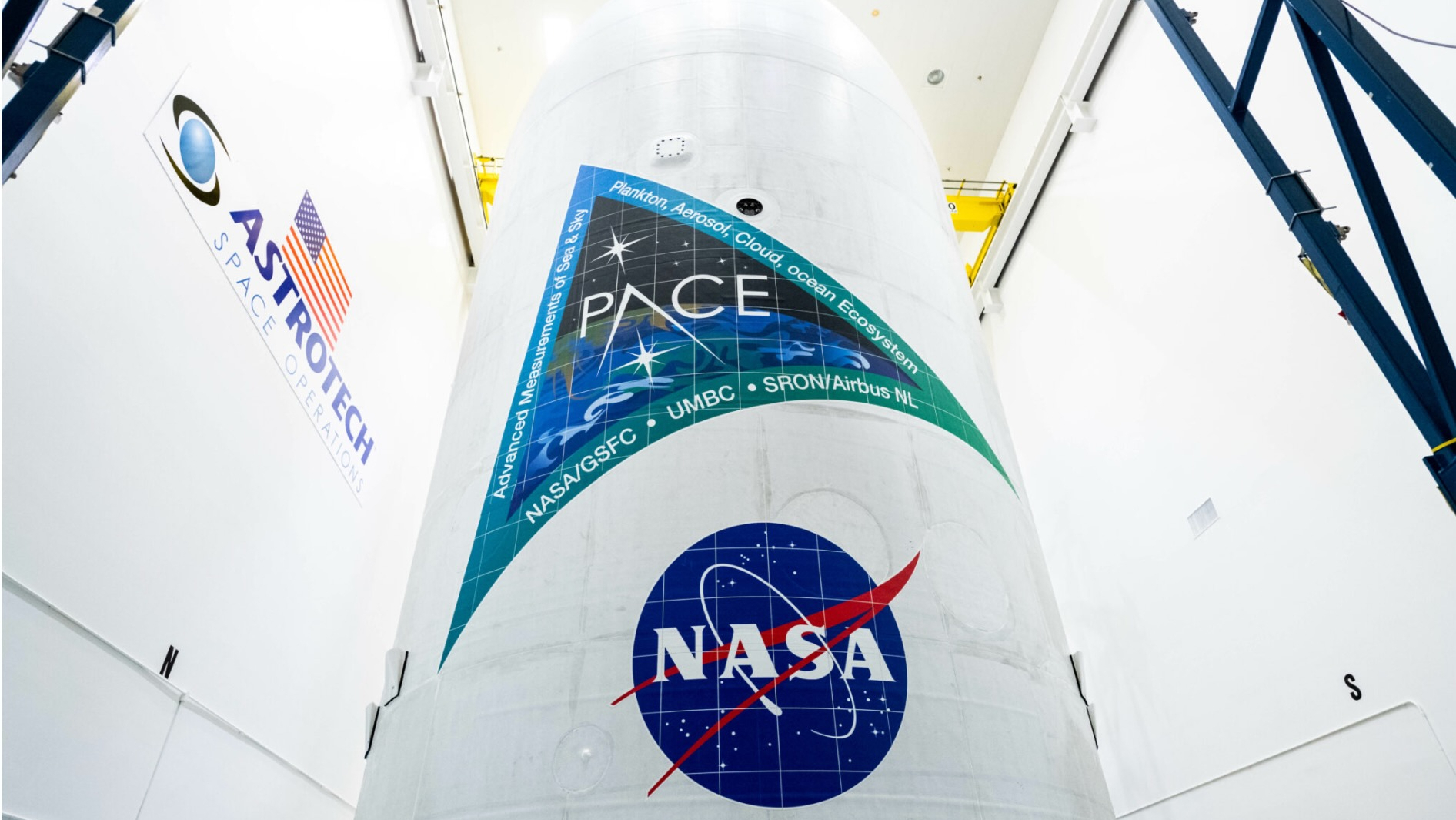
A NASA satellite is about to take flight to map out the ocean's many hues.
NASA's PACE spacecraft, which will help scientists gauge the health of oceans around the world, is set to launch atop a SpaceX Falcon 9 rocket from Florida's Cape Canaveral Space Force Station on Tuesday (Feb. 6) at 1:33 a.m. EST (0633 GMT).
You can watch the liftoff live here at Space.com, courtesy of NASA, or directly via the space agency. Coverage will begin at 12:45 a.m. EST (0545 GMT).
Related: Earth is getting hotter at a faster rate despite pledges of government action
The Falcon 9 will deliver PACE, whose name is short for Plankton, Aerosol, Cloud, ocean Ecosystem, to an orbit 420 miles (677 kilometers) above Earth — about 70% higher than the International Space Station flies.
From that perch, PACE will use its three science instruments "to collect data on clouds, aerosols and phytoplankton growth that can determine ocean color," NASA officials wrote in a mission update on Thursday (Feb. 1).
"Measuring the color and amount of light will help scientists better understand the types and locations of microscopic algae, which are vital to the health of Earth's oceans and its marine life," they added. "PACE will contribute to NASA’s more than 20 years of global satellite observations of ocean biology and key measurements related to air quality and climate."
The 10.5-foot-long (3.2-meter-long) PACE will do this work for at least three years, if all goes according to plan.
PACE has had a long and somewhat harrowing road to the launch pad. The Trump administration tried to cancel the mission three separate times, in its budget proposals for fiscal years 2018, 2019 and 2020. But Congress allocated the required funds on each occasion, saving PACE from the chopping block.
Back in 2014, NASA capped PACE's total cost (including for its launch vehicle) at $805 million, with a liftoff targeted for 2022. That price tag has gone up, however, to $948 million, according to Florida Today.
PACE's launch is part of a very busy year for SpaceX. The company launched 10 orbital missions in January — a single-month record, according to Elon Musk. And that impressive pace could ramp up even more: SpaceX aims to launch 144 missions in 2024, company representatives have said.







